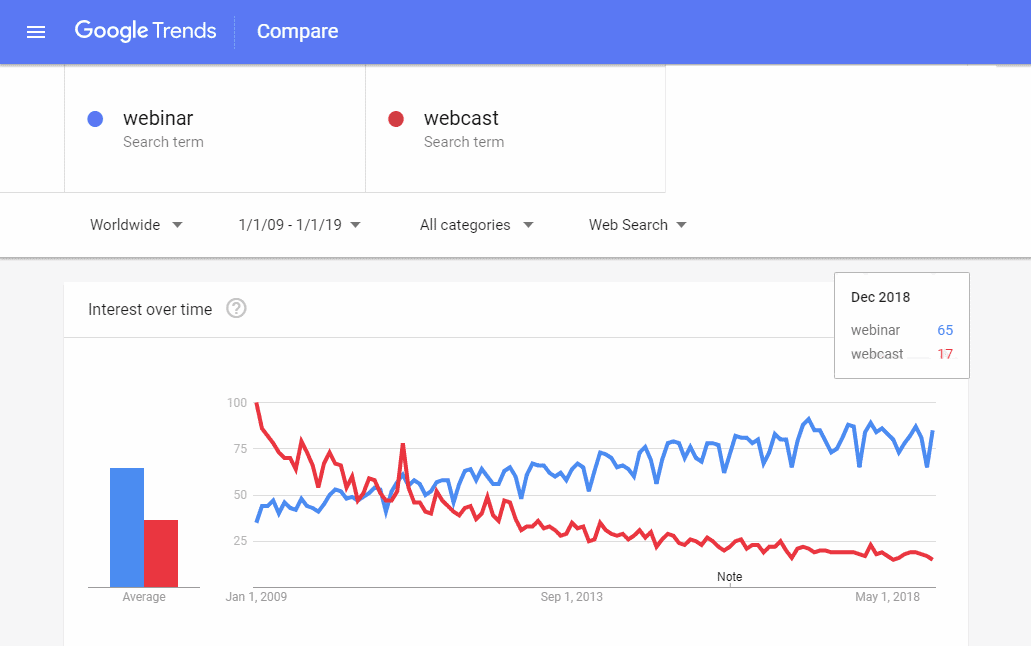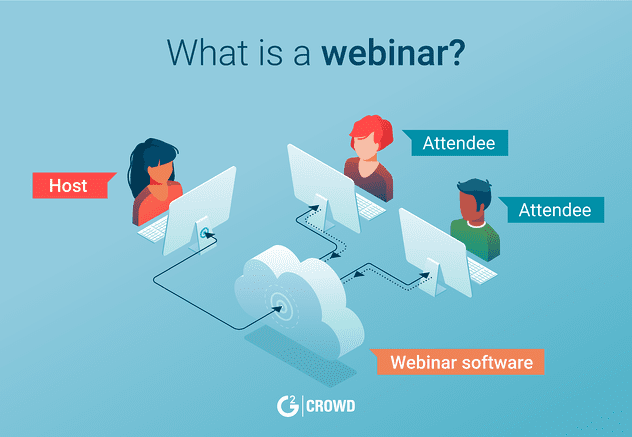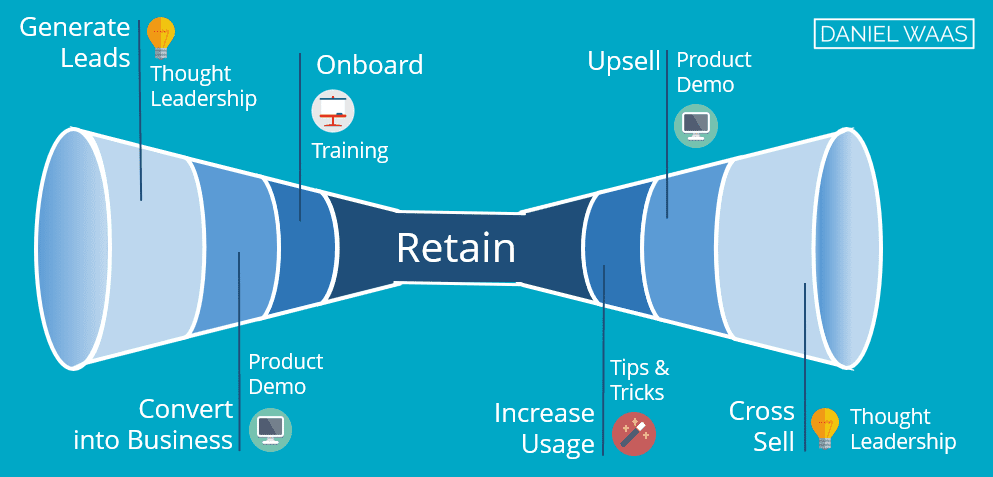A quick look at your inbox and you can’t help feeling webinars are everywhere these days.
 Wondering what they are exactly and maybe a tad embarrassed to ask?
Wondering what they are exactly and maybe a tad embarrassed to ask?
That’s alright. You’re definitely not alone. Turns out “webinar definition” is among the top 3 searches containing the word webinar.
So here you go:
Webinar - The Definition
A webinar is when a group of people meet with an expert online to learn about a topic.
Put simply, a webinar is when a group of people meet with an expert online to learn about a topic.
The word “webinar” itself is a combination of the terms “web” and “seminar”.
It is used interchangeably with the term “webcast” and has become the dominant term for the category with 5.7x more searches looking for the term “webinar”.

How webinars work
A webinar connects an expert to a group of participants.

Need something even more tangible? Check out some of the best examples of webinars I’ve seen in recent years.
As the simple graphic from G2Crowd shows the requirements for a webinar are pretty light.
All the group needs are:
- A computer
- An Internet connection
- A USB microphone or headset
- A webcam (optional, but recommended)
The webinar software takes anything the presenter has on their screen – typically a presentation or a demo – and combines it into a video stream together with the audio and webcam feed.
Participants connect to the webinar either through the browser or a file they need to download and run on their computer.
When the group is small webinars can feel intimate and personal like a workshop. With large crowd they might be more akin to a conference keynote or town hall meeting.
Most webinar software allows the participants to interact with the presenter. Typically through chat, Q&A, and short polls.
Webinars typically require the participants to register ahead of the event. The software keeps track of the registration data, sends automated email reminders as the event draws closer, and lets webinar organizers see if registrants actually attended the event.
What webinars are good (or even great) for
Webinars are typically used to inform, educate, or sell.
The typical use cases are:
- Generating brand awareness & leads
- Positioning the presenter as a thought leader
- Training employees, customers, or partners
- Informing employees, or external groups like press, investors, & analysts

What's next now that you know what webinars are?
Now that you know what a webinar is, are you ready to host one? I’ve written about why you should host webinars here (includes a neat checklist to see if webinars would be right for you).
Or, if you’ve already made up your mind, here’s my best advice on how to get started.


